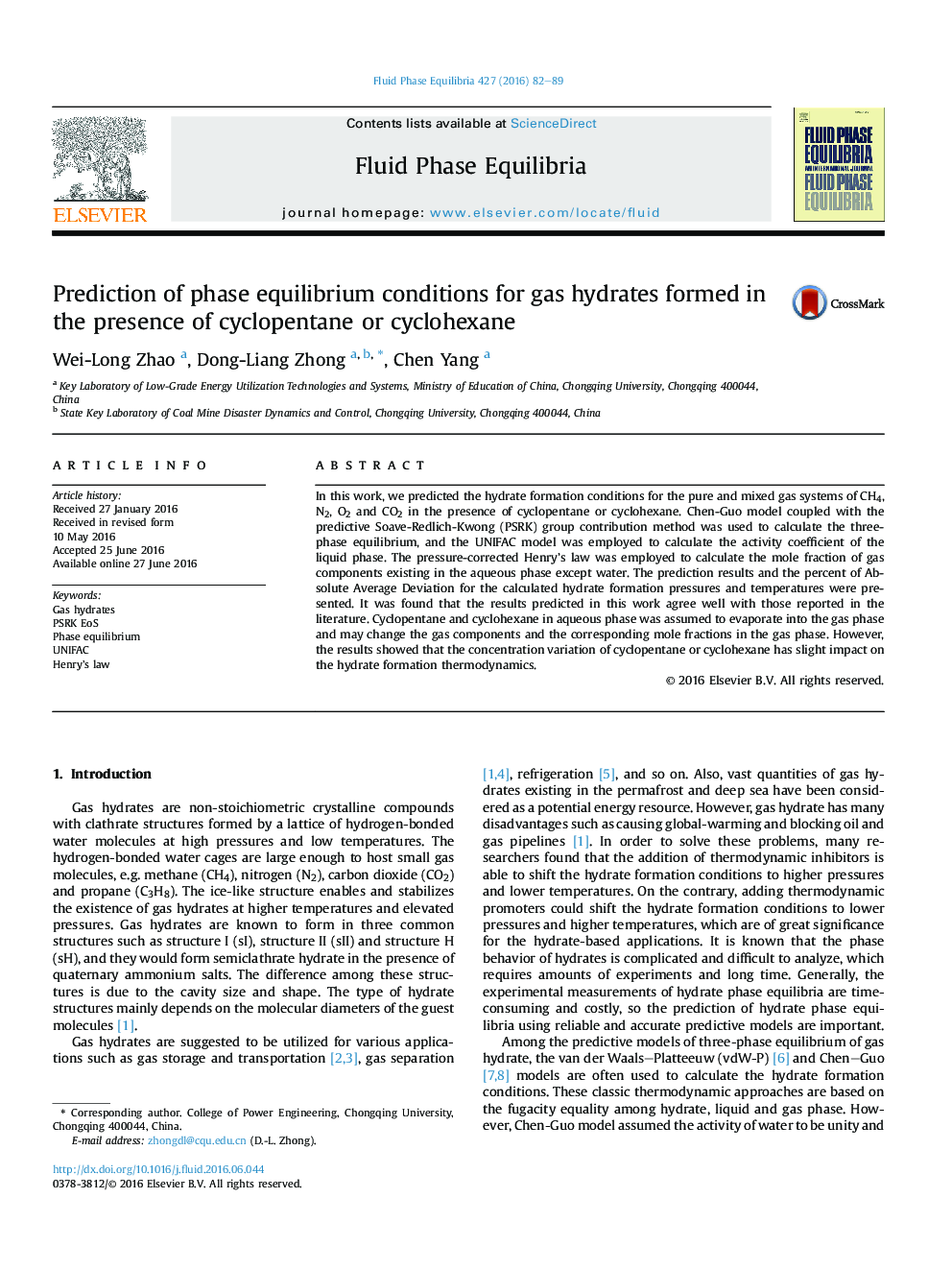| Article ID | Journal | Published Year | Pages | File Type |
|---|---|---|---|---|
| 200922 | Fluid Phase Equilibria | 2016 | 8 Pages |
•Hydrate formation conditions in the presence of CP/CH were predicted.•The volatility of CP/CH was taken into account in the prediction model.•The PSRK group contribution method was used to calculate the water activity.•The UNIFAC model was used to improve the accuracy of the predicted results.
In this work, we predicted the hydrate formation conditions for the pure and mixed gas systems of CH4, N2, O2 and CO2 in the presence of cyclopentane or cyclohexane. Chen-Guo model coupled with the predictive Soave-Redlich-Kwong (PSRK) group contribution method was used to calculate the three-phase equilibrium, and the UNIFAC model was employed to calculate the activity coefficient of the liquid phase. The pressure-corrected Henry’s law was employed to calculate the mole fraction of gas components existing in the aqueous phase except water. The prediction results and the percent of Absolute Average Deviation for the calculated hydrate formation pressures and temperatures were presented. It was found that the results predicted in this work agree well with those reported in the literature. Cyclopentane and cyclohexane in aqueous phase was assumed to evaporate into the gas phase and may change the gas components and the corresponding mole fractions in the gas phase. However, the results showed that the concentration variation of cyclopentane or cyclohexane has slight impact on the hydrate formation thermodynamics.
